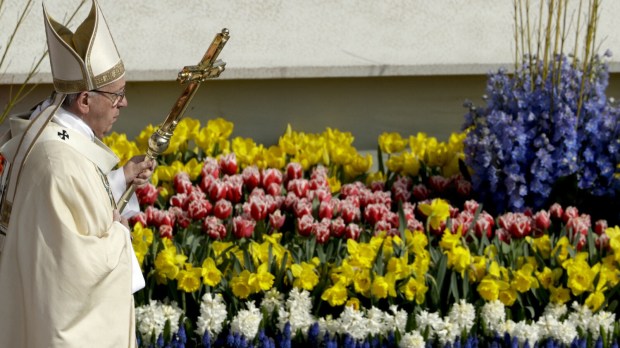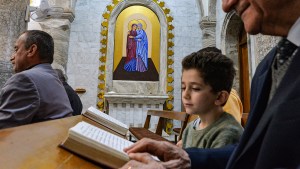Both the Catholic and the Orthodox Churches have spoken about resolve to find a shared date for Easter, and it seems that this goal might be closer than ever.
This November 19, Pope Francis received in audience His Holiness Mar Awa III, Catholicos-Patriarch of the Assyrian Church of the East, which has its See in Iraq.
The Pope thanked the Catholicos-Patriarch for assuring his desire to find a common date for Easter.
For Catholics, Easter is the first Sunday after the first full moon following the spring equinox. While there are various factors that cause the divergence of dates with the Orthodox – including the use of the Gregorian vs Julian calendar – one aspect is that the Orthodox Churches abide by a previous requirement that said the Pascha must take place after the Jewish Passover in order to maintain the Biblical sequence of Christ’s Passion.
Learn more about the divergent dates here.
When does your Christ rise?
The Pope is among a host of religious leaders working to get this issue solved, along with Patriarch Bartholomew of the Greek Orthodox Church and Tawadros II of the Coptic Orthodox Church.
“On this point, I want to say – indeed, to repeat – what Saint Paul VI said in his day: We are ready to accept any proposal that is made together,” Pope Francis said to Mar Awa III.
This is stated by Paul VI in an appendix to the Second Vatican Council’s Constitution on the Sacred Liturgy, promulgated in 1963, Sacrosanctrum Concilium.
2025? Let us have the courage …
Pope Francis added that “2025 is an important year: We will celebrate the anniversary of the first Ecumenical Council (of Nicea), yet it is also important because we will celebrate Easter on the same date.”
For Catholics, it will also be an ordinary jubilee year. Easter that year, for both Catholics and Orthodox, is April 20, the third Sunday of April.
With such a convergence, the Pope proposed:
So let us have the courage to put an end to this division that at times makes us laugh: “When does your Christ rise again?” The sign we should give is: One Christ for all of us. Let us be courageous and search together: I’m willing, yet not me, the Catholic Church is willing to follow what Saint Paul VI said. Agree and we will go where you say. I dare even to express a dream: That the separation with the beloved Assyrian Church of the East, the longest in the history of the Church, can also be, please God, the first to be resolved.




